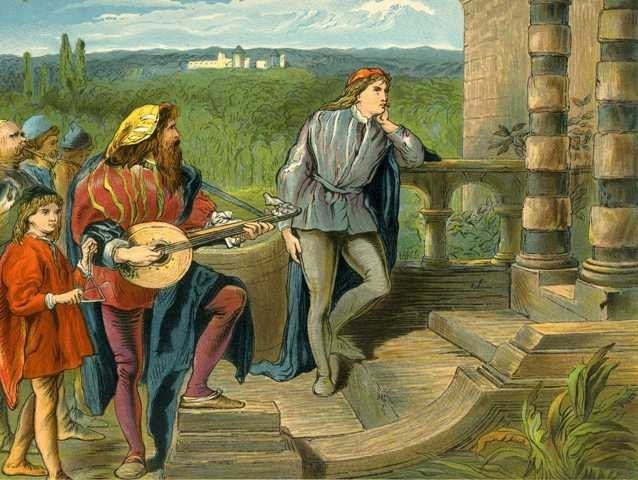
Literature, in a sense, is akin to music. It has the power to capture and evoke emotions, allowing readers to deeply connect with it
L.M. Mansour
Literature, in a sense, is akin to music. It has the power to capture and evoke emotions, allowing readers to deeply connect with it. It can elevate the significance of events, making its audience feel as though they’ve experienced those events themselves. Furthermore, it has a unique sort of beauty which is difficult to live without and as Charles Bukowski aptly put it, “Without Literature, life is hell.”
Its vitality is derived from several key factors, each one carrying unique importance to our world. The first of which is its ability to chronicle the evolution of humanity through language, opinions, and knowledge. A prime example is Shakespeare. He is known to have created a “Shakespearean Language” which was used in his plays and for addressing controversial topics of his time, such as the restrictions on women and the self-righteousness of the upper class. His works provide insights into the development of these debates over time. This allows modern audiences to engage with points of clash between opinions during different centuries and the contemporary views on them.
For instance, the play “Two Gentlemen of Verona” presents male-female friendship and male-female love in competition without clear differentiation or hierarchy. This knowledge of the view towards such friendships exemplifies the changing attitudes toward cross-sex relationships, which have become much more accepted today, with around 30% of adults having such friendships and 70% of college students. In this way, literature is a valuable mirror reflecting societal changes in human relationships and social standards. As seen in the tragedy of burning down the Ancient Library of Alexandria, the loss of the scrolls and various pieces of Literature ranging from Science to philosophy and Art became a symbol of the impermanence of human achievements. Its legacy has had a lasting impact on the importance of preserving and sharing knowledge through any possible medium while also portraying how much we could lose when even a single piece of text is lost. The library served as a major center for scholarship and research, attracting scholars and thinkers from across the ancient world including Euclid, Archimedes, and Eratosthenes highlighting the unifying power of Literature. Secondly, Literature is vital in enriching individuals in a way that may not seem obvious or direct. Personally, reading has always been a form of escapism; a private retreat of sorts. I open the book, and once I start reading, it’s almost as though the world around me is submerged in a dense and immovable mist piece by piece.
As we navigate the labyrinth of life, it’s evident that literature is not just a good book; it’s a treasure trove of emotions, a secret hideaway for the soul, and a timeless guidebook to the human experience.
My thoughts become irrelevant as the heroine fights a suspenseful, nerve-wracking battle making my own worries appear infinitesimal. Moreover, meeting these fictional characters always seemed to me like meeting a piece of advice, if you’ll accept the metaphor. Every character leaves me with a message. Whether it’s Jane Eyre’s strong view of her autonomy in the face of a patriarchal society or Edmond Dantè’s rise from a wrongly accused, poor and young prisoner to becoming the mysteriously wealthy Count of Monte Cristo through his tenacity and perseverance; the characters never cease to inspire me. Various art forms, such as Music, Sports, and Mathematics – to name a few – unquestionably offer inspiration and comfort to countless individuals. But I’m afraid it’ll be impossible to convince me that anything can beat Literature. Within the boundless pages of an enthralling novel, you discover not just solace, but also profound insights and motivation. As Oscar Wilde once mused, “We are all in the gutter, but some of us are looking at the stars.” This quote deeply resonates when you use Literature as a telescope into what life can be and has been for others, making it an entrancing source of inspiration which is a privilege to have.
Also read: What is the Importance of Literature and its Impact on Society?
Thirdly and finally, this creative mode allows for cultural preservation and historical documentation. I’d like to use the example of one of the first civilizations which began the idea of writing to conserve aspects of life: the Ancient Egyptian civilization. With the use of Hieroglyphics, Egyptians were able to document stories, memories and tales of ancient Gods such as Anubis and his role governing the ‘River Reeds’. It would’ve been nearly impossible otherwise. Inscriptions on ancient Egyptian tombs and monuments, such as the hieroglyphs on the walls of the pyramids and on the famous Rosetta stone, are still used by Egyptians to this day as a way to uphold historical traditions and understand the significance of their national heritage by learning its story. Naturally, this is not limited to Egyptians alone and echoes across different countries and continents and will do so forevermore.
Read more: Existentialism: Literature and Philosophical Landscape
As we navigate the labyrinth of life, it’s evident that literature is not just a good book; it’s a treasure trove of emotions, a secret hideaway for the soul, and a timeless guidebook to the human experience. And if you ever find yourself in a heated debate over the most potent source of inspiration, just remember, while other art forms might hit the right note, literature has a whole symphony waiting for you between its pages. To conclude, I will leave you with the immortal words of Mark Twain, “The man who does not read good books has no advantage over the man who can’t read them.
Published under the International Cooperation Protocol with Middle East Business
____________________________
[…] Also read: Influence of Literature: How it illuminated the Path of Human Existence […]